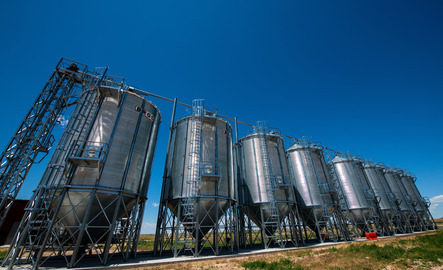About the Applied Economics Minor
The graduate minor in applied economics consists of 15 credit hours, including foundational courses on econometric theory, price analysis, consumer behavior and agricultural economics. Students also choose advanced elective courses that apply to their interests and desired career path.

Students must be pursuing a graduate degree at the University of Wyoming to declare an applied economics minor.
The applied economics minor consists of 15 credit hours, however, students may use select primary degree courses toward the minor. Speak with your academic advisor when declaring this minor to see which courses count for you! This minor blends business, economic theory and practical agricultural insight, so it pairs well with a range of majors across agriculture, business, environment and policy. Here's a list of graduate degrees that this minor complements:

What can you do with an applied economics minor?
The applied economics minor helps students develop smart decision-making and analysis skills. Our graduates go on to use these skills in a wide variety of career paths, including nursing, animal sciences, finance, business, wildlife management, marketing and more!
Applied economics can lead to a wide range of jobs that involve analyzing data, forecasting trends and making informed decisions across industries. Common applied economics jobs include:
- Economic analyst
- Financial analyst
- Policy analyst
- Market researcher
- Business consultant
- Data analyst
- Risk analyst
- Agricultural economist
- Environmental or resource economist
- Public sector economist (government or NGOs)
Applied economics is used across many industries where data-driven decision-making and economic insight are essential. Key industries include:
- Finance and banking
- Government and public policy
- Agriculture and agribusiness
- Healthcare and pharmaceuticals
- Energy and environmental management
- Technology and data analytics
- International development and NGOs
- Transportation and logistics
- Real estate and urban planning
- Education and research institutions
These industries rely on applied economics to evaluate trends, forecast outcomes, shape policy and improve efficiency.
Yes, economics is a strong job field with diverse opportunities and solid earning potential. Economists and economics graduates are in demand across industries like finance, government, consulting, healthcare, tech and environmental policy. The field offers roles in data analysis, forecasting, policy advising and business strategy, skills that are highly valued in today’s data-driven world. Plus, economics provides a strong foundation for graduate school, especially in law, public policy, business or data science.
An economist studies how people, businesses and governments use resources. They analyze data, identify trends and build models to understand economic behavior and solve real-world problems. Economists might forecast inflation, evaluate the impact of policies, advise businesses on strategy or help governments make informed decisions. Their work can focus on anything from labor markets and healthcare to environmental policy and international trade.
"No matter their major, an applied economics minor will give students a sharper lens for solving complex problems and the decision-making and analytical tools employers demand."
- Ben Rashford | Agricultural and Applied Economics Department Head


